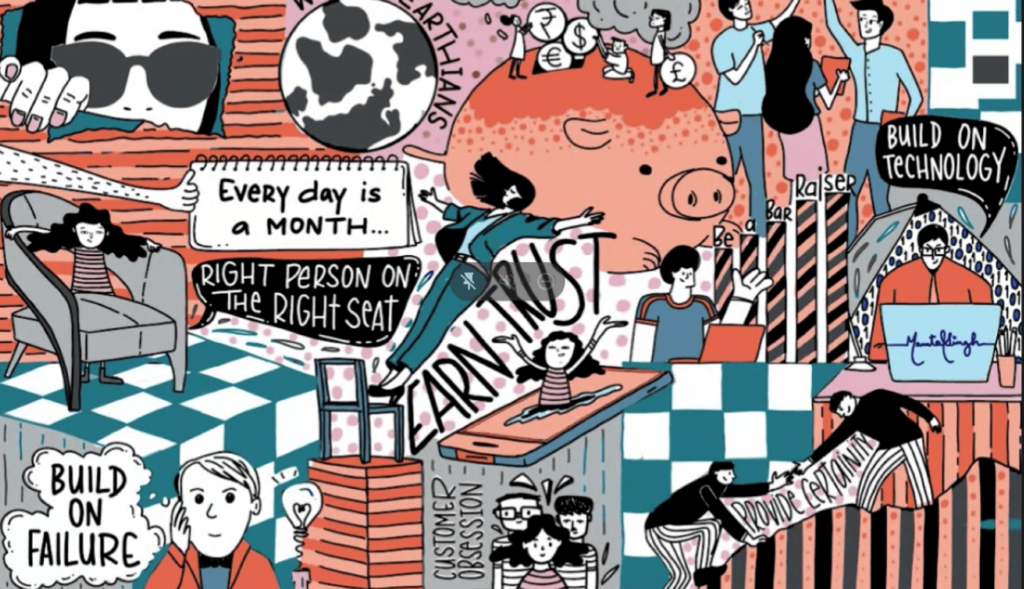Introduction: The Evolving Landscape of Peer Review
Peer review remains an effective and vital concept for academic publishing since it helps to maintain the integrity of scientific research. Manuscripts are subjected to professional evaluation during this procedure, which upholds standards and validates new findings. Despite the importance it holds, peer review faces challenges such as time constraints, potential biases, and the influence of generative AI. Addressing these challenges reflects the balanced approach, integrating traditional review practices with technological advancements to maintain research integrity.
Establishing Robust Peer Review Processes to Support Research Integrity
Amidst the reinforcement of modern study, peer review has been widely known as the principal method for checking the findings and confirming credibility since the 18th century.
Today, various innovative peer review models highlight its foundational importance in ensuring research credibility and integrity. Pre-publication peer review platforms, such as ArXiv and BioRxiv, facilitate early dissemination and community feedback, with a 2023 survey revealing that 56% of researchers see these models as accelerating validation, though concerns about informal review quality persist. Addressing these concerns, leading organizations have adopted advanced pre-publication systems, optimizing feedback mechanisms for robust early reviews.
Also, talking about these open peer review models, such as those used by F1000Research, increase transparency by making review reports public and identifying reviewer identities. Research indicates that this can reduce biases and also improve quality of feedback, as demonstrated by publishers using advanced systems developed by industry leaders. High-volume peer review models, exemplified by journals like PLOS ONE, emphasize technical quality and inclusivity, having published over 16,000 articles in 2023, showcasing a commitment to broad dissemination while maintaining rigorous standards.
Furthermore, AI-driven peer review services have revolutionized the process by offering unbiased assessments, with recent advancements showing a 30% increase in review efficiency and a 95% accuracy rate in detecting methodological flaws. Publishers utilizing AI solutions similar to those provided by Amnet have demonstrated significant improvements in review efficiency and accuracy. These achievements show the critical role of a rigorous peer review process in maintaining the legitimacy and integrity of academic research.
How Digital Changes Impact Peer Review and What It Means for Research Integrity
Digital transformations, including AI integration, are reshaping peer review, presenting both opportunities and challenges:
- Digital platforms have dramatically shortened the time from submission to publication. The average time decreased from 18 months in 2000 to approximately 6-8 weeks in 2023. This acceleration boosts research dissemination but requires careful management to avoid compromising review thoroughness. For instance, some leading publishers have successfully streamlined their processes with advanced solutions that align with the strategies developed by Amnet, demonstrating how technology can enhance both speed and quality in publishing.
- Digital tools, including indexing services and social media, have enhanced research visibility. With 75% of researchers using digital platforms to discover research, there is a need for strict quality controls to ensure the integrity of published work. The effective application of digital tools by various organizations, including those implementing practices inspired by Amnet’s solutions, has set a standard for improving research visibility while maintaining rigorous peer review standards.
- There are many new models such as open and post-publication peer reviews that leverage digital platforms for greater transparency. A 2024 survey revealed that 68% of researchers support open review practices, citing reduced biases and improved accountability as key benefits. Leading publishers have successfully adopted these models, implementing procedures similar to those permitted by Amnet’s innovations, emphasizing their role in increasing openness and improving the review process.
Harnessing AI in Research: Balancing Innovation with Integrity Through Ethical Governance
AI is thoroughly transforming the peer review process by striking a critical balance between technological advancement and ethical governance. AI tools are streamlining manuscript processing, with recent surveys indicating that AI can reduce review and publication times by up to 40%. This efficiency gain is contingent upon the proper calibration of AI systems to ensure they enhance decision-making while mitigating biases. Publishers employing advanced AI solutions, akin to those adopted by industry leaders, have observed significant improvements in processing efficiency and decision accuracy. AI also plays a crucial role in detecting biases in reviews, with recent advancements increasing bias detection capabilities by 25%, thus fostering greater fairness in the review process. The use of AI tools for bias detection, as seen in leading publishing environments, has effectively enhanced the impartiality of peer reviews. Furthermore, AI also contributes to quality control by providing rigorous checks for methodological errors, with a 2024 review highlighting a 35% reduction in published errors due to AI-driven measures. The successful implementation of AI for quality assurance, which reflects techniques adopted by leading industry players, strongly emphasizes the balance between embracing technical progress and upholding ethical standards.
Anonymity in Peer Review: Benefits, Challenges, and the Future of Transparency
Analyzing the role of anonymity in regards to the peer review it is possible to consider the advantages as well as the possible issues. Blind refereeing has been the fundamental principle of the peer review system where the reviewer’s identities are concealed to avoid bias in their Assessments. However, such a model appears only to be traditional and does not work properly as the field develops. The changes that are taking place in the context of peer review due to digitalisation include the increased number of articles and data security. Based on the statistics, global research article output was over 3 million in 2023 which significantly overloaded the peer review process and assisted with the volume of patient visits on one hand and on the other hand, they are the cause of questions regarding the comprehensiveness of these reviews and the protection of data.
Despite these challenges, industry leaders have made strides in addressing these issues through advanced systems and robust data privacy measures. For instance, publishers using sophisticated platforms similar to those developed by Amnet have managed to balance high submission volumes with rigorous review processes. As the landscape evolves, there is an increasing call for greater transparency in peer review. Models like open peer review, which reveal reviewer’s identities and reports, aim to reduce biases and enhance accountability. However, this shift towards transparency creates data privacy concerns and highlights the need for ongoing revisions to standards and policies. Ongoing efforts by leading publishers highlight the importance of adapting to technological advancements while striving to preserve the core values of fairness and integrity in the peer review process.
Retraction and reputation: is the stigma in academic publishing evolving?
The changing viewpoints of retractions in academic publishing establishes a significant movement towards understanding their function in preserving research integrity rather than just stigmatizing scholars. Historically, retractions were often seen as marks of failure or misconduct, casting a long shadow over the affected researchers. However it is now evolving because retractions are increasingly recognized as crucial mechanisms for correcting the scientific record and addressing errors.
Considering the example of a recent case which involved a peer reviewer who failed to disclose conflicts of interest, leading to the withdrawal of a paper that had overlooked key biases linked to the asbestos industry. This instance emphasizes the need for transparency and precise disclosure in ensuring research quality. Thus, despite so many consequences that come with the study’s retraction or the reputations of researchers and journals, modern science is much more tolerant of retraction procedures as perfecting or rebuttal of hypotheses or results. This significant shift of perspective is consistent with the growing awareness of retractions as critical to the reliability and quality of published research products.
Conclusion: The Path Forward for Peer Review in 2024
As we move into 2024, the evolution of peer review practices is essential for maintaining research integrity amid a rapidly changing academic landscape and to ensure that peer review remains effective, continuously adapting to current trends and emerging technologies is a must.
Adopting open-access policies is crucial for enhancing research dissemination without sacrificing quality. Research indicates strong support for open access, with 62% of researchers advocating for this model to increase accessibility. Leading publishers, following successful examples similar to those facilitated by Amnet, demonstrate how open access can enhance the spread of knowledge while upholding high standards.
The integration of AI and digital tools is equally important while these technologies do offer substantial benefits in improving efficiency and accuracy, balancing them with traditional review practices is vital. Organizations that have embraced AI, including those utilizing advanced solutions akin to Amnet’s, provide valuable insights into maintaining quality and ethical standards amidst technological advancements.
Moreover, diversification in review processes is key to achieving fairness and reducing biases. Recent efforts to diversify editorial and review panels, inspired by practices similar to those driven by Amnet, underscore the importance of inclusivity in ensuring comprehensive and unbiased peer reviews.
So, as peer review continues to evolve it must address the growing demands of academic publishing through innovative models, effective use of technology, and a commitment to inclusivity. By navigating these changes thoughtfully, peer review can continue to uphold the credibility and integrity of scholarly research, making significant contributions to the field.
References :
https://www.biorxiv.org/content/10.1101/2024.04.19.590240v1.full
https://journals.plos.org/plosone/s/journal-information
https://psico-smart.com/en/blogs/blog-the-impact-of-artificial-intelligence-and-machine-learning-on-performance-evaluation-tools-11788
https://datareportal.com/reports/digital-2023-global-overview-report
https://www.ncbi.nlm.nih.gov/pmc/articles/PMC5728564/
https://www.sciencedirect.com/science/article/pii/S2772906024001353
https://www.sciencedirect.com/science/article/pii/S2667096823000125



